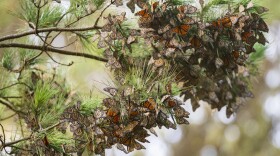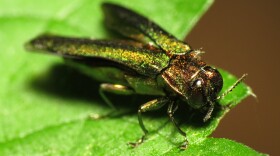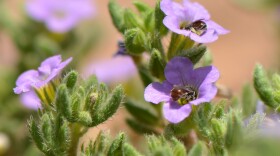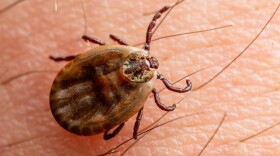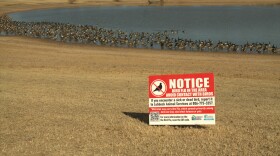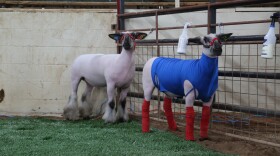-
An invasive insect called the rice delphacid was a major problem for some farmers in 2025. With low prices for their crop and a high cost of doing business, many are wondering how they'll make a profit in 2026.
-
The U.S. Department of Agriculture has launched a new website to centralize information about the New World Screwworm. Texas Public Radio's Marian Navarro reports a case was detected this fall in a Mexican city less than 70 miles from the Texas-Mexico border. City departments will be closed this Thursday and Friday for Thanksgiving. Our Sean Ryan says offices and community centers will remain closed until Monday, but libraries and museums will resume normal hours over the weekend. A new national survey finds that nearly half of the 1,300 participating small business owners experienced a drop in profits this fall.
-
Every fall, West Texans look to the skies for one of nature’s most remarkable journeys: the migration of the monarch butterfly. But monarch butterfly populations are declining due to threats like habitat loss, herbicide use and climate change.
-
Researchers hope data out of Texas will raise awareness about a type of infection commonly spread through kissing bugs. It's part of an effort to recognize Chagas Disease as endemic in the U.S.
-
This week, Lubbock County commissioners approved a budget plan, including $1.4 million cut for the Sheriff’s Department and $250,000 cut for volunteer firefighters. New World Screwworm was detected in a city in Mexico less than 70 miles from the border with Texas. Marian Navarro with Texas Public Radio reports the case was detected in the early larval stage.
-
HB 1592 creates a statewide alert system for risks to wildlife and crops.
-
Almost a year after it closed, Garza County officials say they are finalizing the sale of the Giles W. Dalby Correctional Facility to the state of Texas. Lubbock Public Health has confirmed the presence of both the St. Louis Encephalitis Virus and West Nile Virus in the area. Our Bishop Van Buren reports the city is urging residents to avoid contact with mosquitos. And after a human case of screwworm was confirmed in the U.S., the Texas Department of State Health Services has launched a resource page on its website.
-
Texas is home to approximately 1,200 species of bee and about 25% of them are specialized bees, meaning they only pollinate specific plants. The bristly nama may not be a familiar name for those on the South Plains, but the plant and its purple flowers are all over Lubbock and its bees are hard at work to keep the ecosystem alive.
-
Recent lab data indicate higher tick activity this season in Texas than in years past. The director of UNTHSC's tick-borne disease lab tells how to guard against bites.
-
Last week's officer involved shooting on Texas Tech campus has been ruled as justified and officers have been cleared to return to duty. Colleges across the country can now make direct payments to their student-athletes, with a maximum allowance of $20.5 million per year. The outdoors are calling for a day at the lake or a night under the fireworks, but with that and the recent rain comes one issue: mosquitoes. Our Olivia O'Rand has more on how to protect yourself against the pesky insects.

Play Live Radio
Next Up:
0:00
0:00
Available On Air Stations


